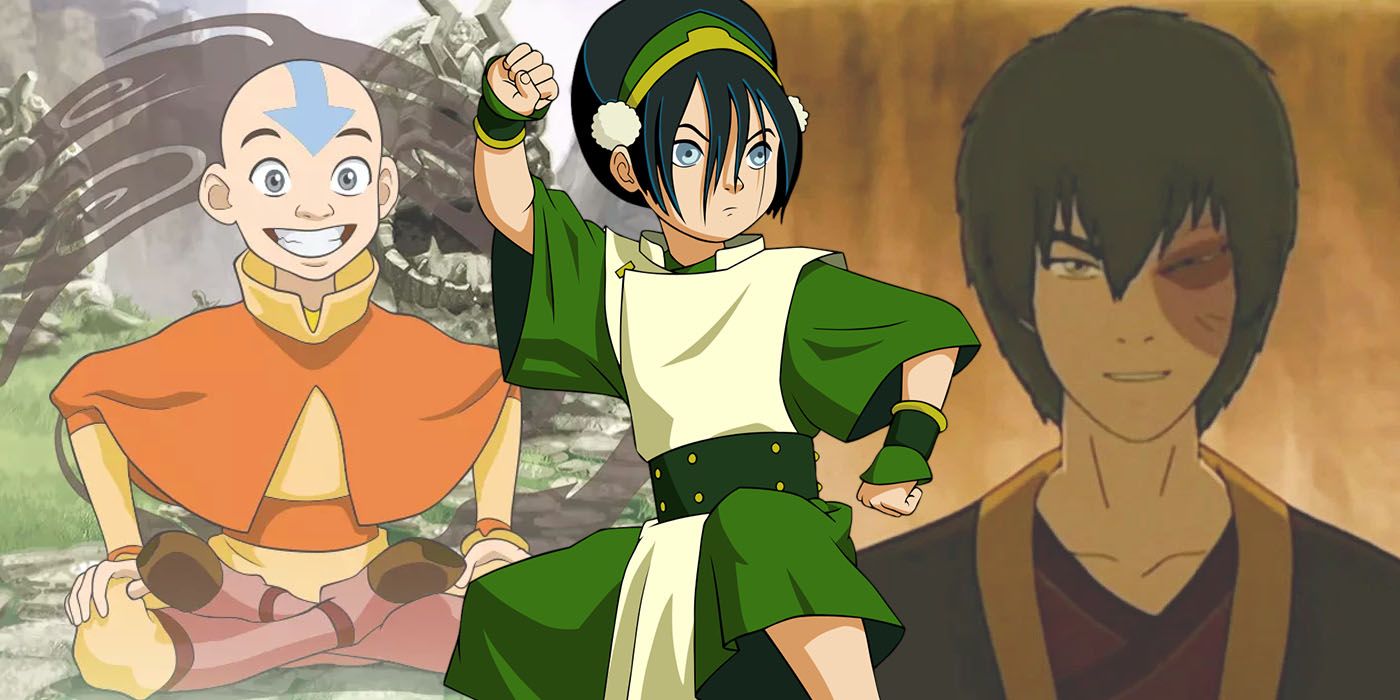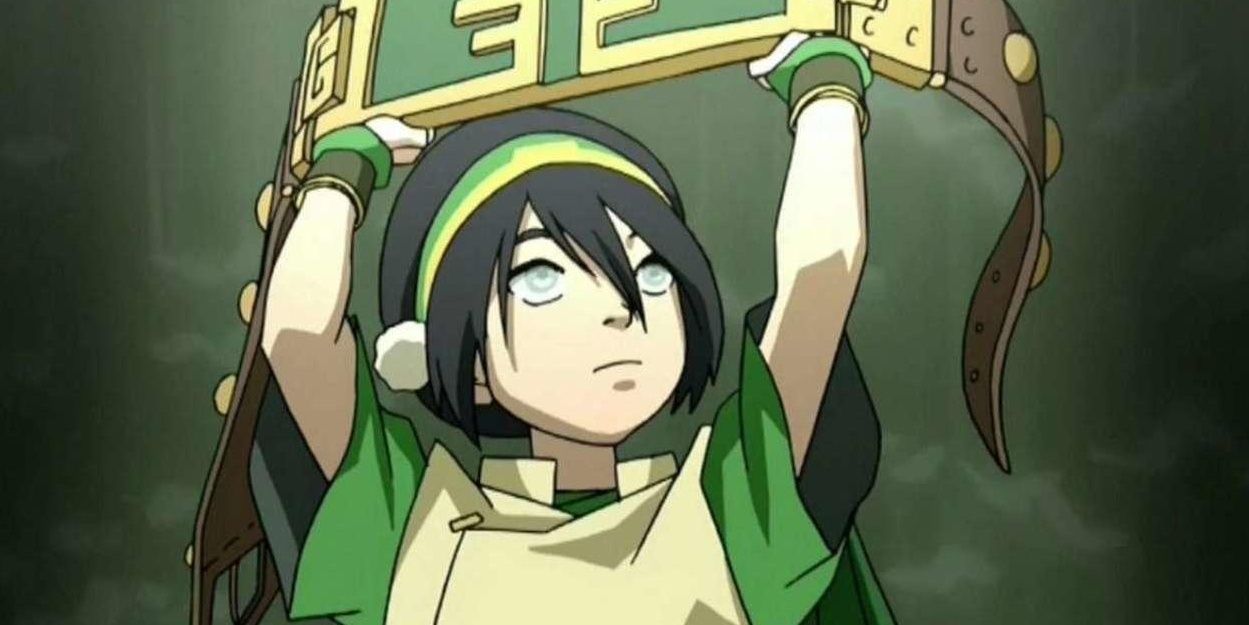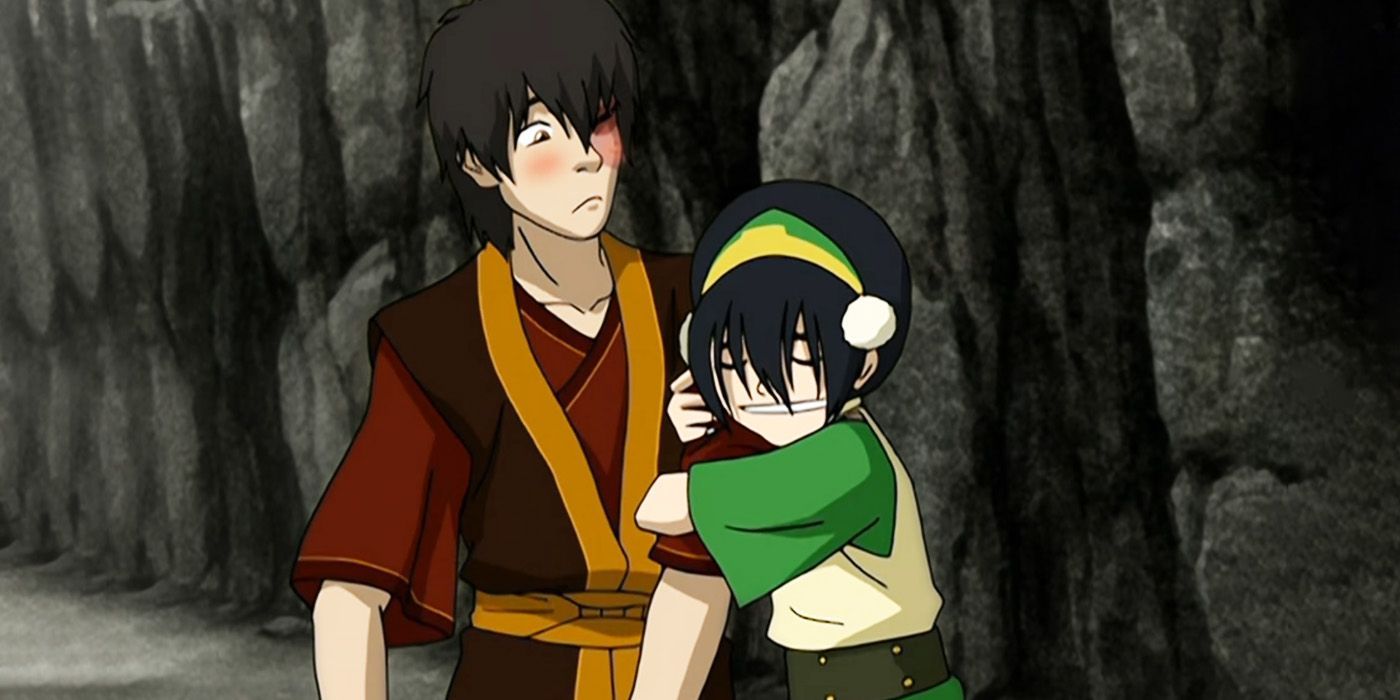Avatar: The Last Airbender explores worldly and intimate themes alike, often tying them together in unexpected ways. Most of the major characters learned the value of forgiveness and how to handle one's own destiny. This is a vital lesson not just for Aang and Zuko, but Toph Beifong as well.
Some parallels can be drawn between Avatar Aang and his enemy-turned-friend Zuko, with both believing it was their fate to end the Hundred-Year War and restore the Fire Nation's good name. But on a more intimate level, Zuko actually has more in common with Toph -- even if the two hardly ever interact in the story. Perhaps that was why Toph was the first Gaang member to accept Zuko for who he was.
What Zuko & Toph Have In Common
Even if they grew up in opposing nations late in the War, Toph and Zuko had remarkably similar upbringings that defined their behavior in profound ways early on. Both were born in powerful but conservative families where tradition, decorum and obedience are all expected as a matter of course. The Fire Nation royal family was certainly more dysfunctional than the Beifong noble house, but even so, Toph and Zuko clearly grew up with parents who didn't value them for who and what they were. Zuko's father Ozai disapproved of the boy in favor of Azula, and Toph's parents saw their child as a helpless girl who needed coddling and endless tutoring. Toph and Zuko both yearned to express their true selves and get acknowledgement, but that was impossible at first.
Therefore, both ended up leaving their homes under different circumstances but with similar implications. Once Zuko was exiled and Toph ran off to join the wandering Gaang, these two wrongly thought that pure, sweet freedom would empower them and allow them to find true happiness. On his small corvette and with only his uncle Iroh and crew for company, Zuko was more lost than ever, chasing an impossible mission to capture the Avatar and restore his honor.
Zuko was preoccupied with delusions of grandeur, and similarly, Toph's own newfound freedom gave her some misleading ideas. Toph thought she was an independent lone wolf who made freedom her personality, but this was meaningless. Toph was secretly wracked with guilt over abandoning her parents, and the initial thrill of being free soon wore off. Toph needed something more as did Zuko, even if that meant humbling herself.
After having time to think and face the reality of their own decisions, both Toph and Zuko realized the truth -- their true destiny is to help Aang realize his own. In a meta sense, Toph and Zuko learned they are indeed supporting characters and not the protagonist, even if they are the leads in their own stories.
In-universe, they realized they had been arrogant all along and that true humility and selflessness would bring them inner peace. Both were fated to help Aang realize his own destiny to restore world peace, freeing them of the burden of inventing their own destinies. They had both made mistakes with their own life stories but still had a chance to fix them, make amends and connect with other people on a deeper level.
Toph & Zuko In Avatar: The Last Airbender
Despite their strong thematic connections in Avatar, Toph and Zuko rarely interact with one another and don't get many chances to comment on their similar experiences. The series finale saw Toph volunteer to help Zuko search for the missing Aang and explain her backstory, but Zuko didn't listen closely. He actually cut her off and urged her to focus on finding Aang instead, which Toph found disappointing. If the episode had had the time, this scene could have shown Toph and Zuko growing closer as friends, realizing they are not so different after all. Both of them felt lost with their confusing freedom until realizing that their humble goal of aiding Aang is what they needed all along to achieve inner peace.
The Last Airbender did have a more substantial Toph/Zuko moment earlier in Book Three: Fire. The freshly redeemed Zuko tried to approach the Gaang at the Western Air Temple, only for them to push him away. Once they cooled off, Toph decided to give Zuko another chance and approached him elsewhere that night, only for Zuko to accidentally burn Toph's feet in a moment of panic.
Toph was distraught at first, then determined that Zuko had merely made a mistake and wanted to make amends. Zuko was not a bad person; he was just a lost, confused individual who lashed out at others with misplaced anger, and Toph had once been the same way. Thus, she was the first to welcome Zuko to the Gaang, and one by one, her friends did the same.



